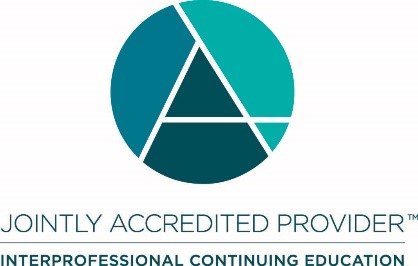Biomarker Testing for Immunotherapy
Recommendations and requirements for biomarker testing vary by the type of immune checkpoint inhibitor (ICI), specific tumor characteristics, and treatment setting. Approvals and indications for ICIs are evolving and expanding on a regular basis, and it is critical for clinicians to have up-to-date guidance on the proper use of biomarker testing to identify patients most likely to derive clinical benefit. The NCCN Guidelines for various disease sites provide critical guidance on the appropriate use of biomarker testing when considering ICI therapy.
This information was originally presented at the NCCN 2019 Annual Conference: Improving the Quality, Effectiveness, and Efficiency of Cancer Care™ held in Orlando, Florida, March 21-23, 2019.
Target Audience
This educational program is designed to meet the educational needs of the interprofessional oncology care team, including: physicians/oncologists, nurses, physician assistants, pharmacists, and other healthcare professionals who manage patients with cancer.
Learning Objectives
Following this program, participants should be able to:
- Describe how biomarkers can be used to identify candidates for immune checkpoint inhibitor (ICI) therapy.
- Discuss factors that might influence the decision to conduct biomarker testing.
- Utilize the NCCN Guidelines to review the approaches to biomarker testing for ICI therapy.
Jarushka Naidoo, MB BCh
The Sidney Kimmel Comprehensive Cancer Center at Johns Hopkins
NCCN Medical Education Disclosure Policy
It is the policy of NCCN that every 12 months, all faculty, moderators, activity planners and all internal planning staff participating in NCCN continuing education activities are expected to disclose any financial relationships with a commercial interest as defined by the Accreditation Council for Continuing Medical Education (ACCME) Standards for Commercial Support. In addition, all faculty presentations have been reviewed for adherence to the ACCME’s Standards for Commercial Support (the provider develops activities/educational interventions independent of commercial interests [SCS 1, 2 and 6] by experts on the topics).
Per the ACCME Standards for Commercial Support, individuals who do not disclose relevant financial relationships will be disqualified from involvement in the CE activity as a content developer, planner, or presenter. A complete list of individuals’ relationships with external entities is available upon request.
Definitions
NCCN continuing education considers financial relationships to create a “conflict of interest” when an individual has both a financial relationship with a commercial interest and the opportunity to affect CE content about the products or services of a commercial interest with which he/she and/or a spouse or partner has a financial relationship.
NCCN continuing education considers “relevant financial relationships” as financial relationships in any amount occurring within the past 12 months that create a conflict of interest. NCCN does not set a minimal dollar amount for relationships to be significant. Inherent in any amount is the incentive to maintain or increase the value of the relationship.
Faculty Disclaimers
All faculty for this continuing education activity are competent in the subject matter and qualified by experience, training, and/or preparation for the tasks and methods of delivery.
Faculty presentations may include discussion of off-label use. Faculty will disclose that the use in question is not currently approved by the FDA per the product labeling.
Faculty Disclosures
The faculty listed below discloses no relevant financial relationships:
Jarushka Naidoo, MB BCh
NCCN Staff Disclosures
The NCCN Activity Planning staff listed below discloses no relevant financial relationships:
Robert W. Carlson, MD; Melissa Esplen; Mark A. Geisler; Kristina M. Gregory, RN, MSN, OCN; Kristin Kline Hasson; Rose Joyce; Karen Kanefield; Lisa G. Kimbro, MBA, CPA (Employed by NCCN until 8/10/18); Wui-Jin Koh, MD; Joan S. McClure, MS (Employed by NCCN until 8/1/18); Lisa Perfidio, MS; Sarah Sinclair; Kathy Ann Smith, CHCP; Gary J. Weyhmuller, MBA, SPHR
The NCCN Clinical staff listed below discloses no relevant financial relationships:
Jillian Scavone, PhD

In support of improving patient care, National Comprehensive Cancer Network (NCCN) is jointly accredited by the Accreditation Council for Continuing Medical Education (ACCME), the Accreditation Council for Pharmacy Education (ACPE), and the American Nurses Credentialing Center (ANCC), to provide continuing education for the healthcare team.
Physicians
NCCN designates this enduring material for a maximum of 0.50 AMA PRA Category 1 Credit™. Physicians should claim only the credit commensurate with the extent of their participation in the activity.
Nurses
NCCN designates this educational activity for a maximum of 0.52 contact hour.
Pharmacists
NCCN designates this knowledge-based continuing education activity for 0.50 contact hour (0.050 CEUs) of continuing education credit. UAN: JA4008196-0000-19-056-H01-P
Physician Assistants
NCCN has been authorized by the American Academy of PAs (AAPA) to award AAPA Category 1 CME credit for activities planned in accordance with AAPA CME Criteria. This activity is designated for 0.50 AAPA Category 1 CME credit. Approval is valid until March 1, 2020. PAs should only claim credit commensurate with the extent of their participation.
Available Credit
- 0.50 AAPA Category 1 CME credit
- 0.50 ACPE contact hours
- 0.50 AMA PRA Category 1 Credit™
- 0.52 ANCC contact hours
- 0.50 Participation
Required Hardware/software
To complete this activity, users will need:
- A device with an Internet connection
- One of the two latest versions of Google Chrome, Mozilla Firefox, or Safari (Internet Explorer is no longer supported)
- Adobe Flash Player and/or an HTML5 capable browser for video or audio playback
- Adobe Reader or other PDF reader software for certificate viewing/printing

 Facebook
Facebook X
X LinkedIn
LinkedIn Forward
Forward